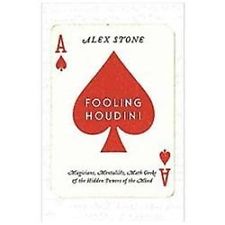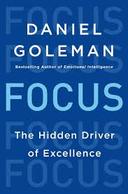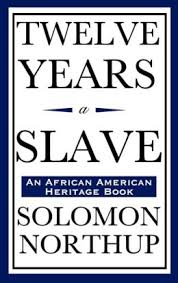 I just finished reading Fooling Houdini: Magicians, Mentalists, Math Geeks, and the Hidden Powers of the Mind by Alex Stone, and it was my most pleasurable read all year (the most thought-provoking and brain-altering was probably Antifragile). The book was so pleasurable for me to read because I identified so closely with the author's journey. I've loved magic since I was about 7 years old, and for my whole life, I enjoyed "collecting" tricks and dabbling, barely squeaking by in my abilities. When I read about how the author failed in his first magic competition and then took to developing his skills seriously, that immediately rang true for me, as I find myself right now reinvigorated in my own study of magic, ever since cramming for and passing my audition to join the Magic Castle's Academy of Magical Arts as a Magician Member. I don't care about what various reviews say about the book or how mad some magicians might be about some exposure of their methods in Alex's book. Alex does a major service to the art and science of magic by showing how special and powerful it can be when it's done right and what interesting intellectual and historical background there is to our amazing craft. There is no point to revealing secrets just for entertainment's sake, and that is certainly not what Alex does. He finally demystifies the hard work behind learning magic and gives magicians like me who want to improve their skills a whole lot of resources and ideas to check out. I particularly enjoyed the sections on mentalism, psychology, and the deep relationship between computer science, math, and magic. A lot reminded me of the other awesome neuroscience and magic book I read a couple years ago: Sleights of Mind. In this book, though, I gained a profound appreciation for how many amazing magicians are computer scientists and physicists, and how many amazing scientists are hobbyist magicians! The sections on probability theory and shuffling math were mind-blowing too, and I can't wait to test out some of the things I learned. Below are my copious notes on the book.
0 Comments
 Daniel Goleman, the author of the famous book Emotional Intelligence, gave a talk at Google last week on his new book Focus: The Hidden Driver of Excellence. I haven't read either book, so I enjoyed learning some of the basics behind his research into focus and cognitive control. The most surprising thing I learned was that kids who don't eat the marshmallow in the experiment demonstrate cognitive control skills (which are like willpower, active mindfulness, and conscious direction of their brain) and end up doing better on the SATs and make more money 20 years later in life, and those effects are bigger than those based on differences in family educational background or IQ. Goleman's conclusion, thus, seems to be that skills related to focus should be taught in school. Different types of attention Attention we direct (top down) Attention that seduces up (bottom up) Endless seductions from technology (pop-ups) Intrusions in sustained focus Attention needs to be paid more attention to Attention threatened in last few years Neuroscience research into attention circuitry in brain Floor effect Occurs at google or Ivy League college Wherever premium put on iq (filter) Once u get selected by iq, then excellence defined by things other than iq Competence modeling When hiring someone don't look at raw resume but derive model of what competences required for specific positions by looking at the stars and seeing how they differ from the average and then look just for those competencies Distinguishing competencies vs entry level ones Emotional intelligence Self awareness Self management Empathy Social skill First two are elements of attention Social skill is like managing self So social skill is about attention to self Abilities Inner focus Other focus Systems focus Performance vs stress hormones is inverted u curve Top is state flow Right side is amigdala hijacking Only thing it cares about is am I safe Rather be safe than sorry point of view so hair trigger Cognitive control Improved by mindfulness exercises Marshmallow experiment Tracked the kids 10 years later The ones who waited had a 210 point advantage on SAT Bigger than diff between kids of big family education difference Cognitive control is an independent asset Cognitive control at age 8 predicted wealth in 20 years better than iq or family education Should be taught in schools How to teach Toddlers learn through modeling Sesame Street episode where Cookie Monster waits before eating cookie Breathing buddies exercise watching teddy bear (training attention) Same circuitry brain uses to manage disturbing emotions and impulse Creates calm and focus Stoplight: when upset red (calm down and think before act), yellow (consider all consequences), green (take it all the way) Game where Every time breathe out tap screen and on 5th breath tap twice Gives visual reward Enhances cognitive control Best way is mindfulness training developed with Meng Other focus (second type of focus) besides inner Knowing what's up with others 3 kinds of empathy Cognitive: getting other's thoughts Emotional: getting other's feelings Empathic concern: inclined to help with pain, basis of compassion Third type of focus: systems awareness Organizational systems Family systems Broader systems Anthropiscene problem One species is altering all others and those that support life in the wrong way Systems of energy, transport, etc degrading systems that support life on planet Human brain not designed to notice the problem No perceptual apparatus to perceive this Lifecycle assessment Analyze footprint of processes producing products around us Goodguide.com Skindeep.com  The next Ryan Holiday-suggested book I read was Twelve Years a Slave by Solomon Northup. I found it similar in many ways to Frederick Douglass's Narrative, and this one was perhaps even more powerful because it was the story of a free man who was kidnapped into slavery and then miraculously rescued. The story was gripping and revealed so much about pre-Civil War society. I was impressed by how well educated, well spoken, and inventive the author proved to be, creating his own tools, transportation mechanisms, and feeding "technology" when circumstances necessitated it. I also liked the factual tone of the book; the author explicitly says he attempts not to show judgment of his story or the institution of slavery but rather present them how they were and let the reader judge for him or herself. The ending of the book was the best part in my opinion -- emotional, impactful, and cathartic. |
Archives
June 2024
Categories
All
Subscribe |
 RSS Feed
RSS Feed
